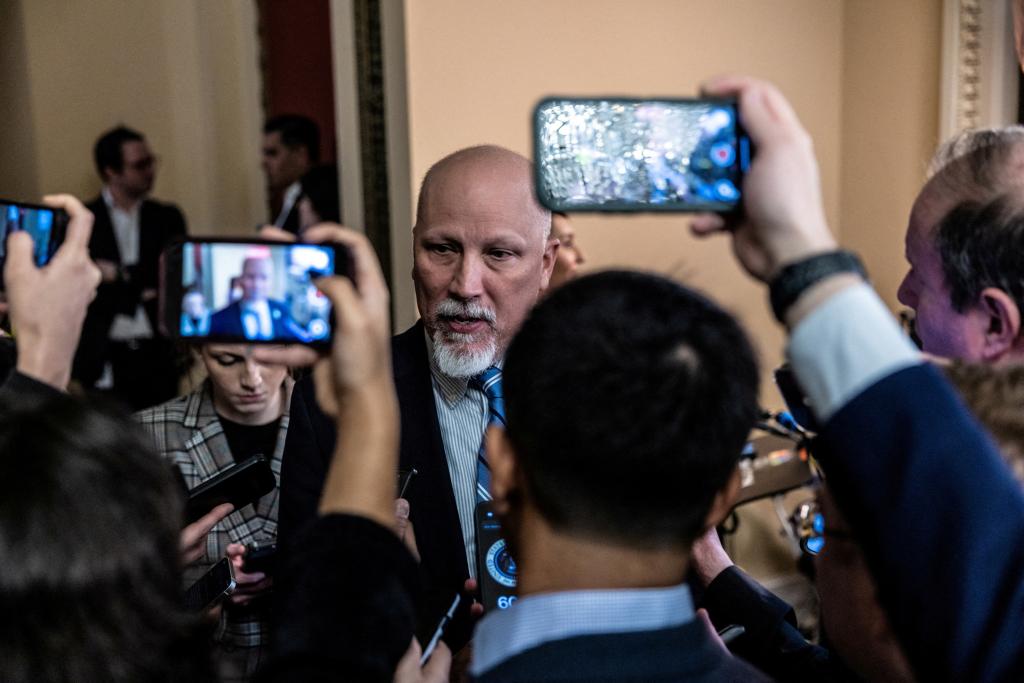The impending House speakership race for the 119th Congress is fraught with uncertainty, as conservative hardliner Rep. Chip Roy asserts that the current Speaker, Mike Johnson, lacks the necessary votes to retain his position. Despite receiving a “Complete & Total Endorsement” from President-elect Donald Trump, Johnson faces resistance from a faction of Republicans concerned about his leadership’s ability to effectively advance the president’s agenda. Roy, a fiscal hawk who previously clashed with Trump over government spending, is among the undecided representatives, highlighting the deep divisions within the Republican party. The situation mirrors the protracted speakership battle two years prior when Kevin McCarthy endured 15 rounds of voting before securing the gavel.
Roy’s skepticism stems from Johnson’s handling of government funding, particularly his reliance on stopgap measures without significant spending cuts, a major point of contention for fiscal conservatives. Johnson’s repeated use of these short-term solutions has fueled Roy’s concerns, as he believes it undermines the party’s negotiating power and fails to address the underlying fiscal issues. This disagreement reflects a broader ideological rift within the Republican party, with hardliners pushing for drastic spending cuts while others prioritize maintaining government operations and avoiding shutdowns. The narrow Republican majority in the House, standing at 219 members, leaves Johnson with virtually no room for error. He can only afford to lose a single vote to reach the required 218-vote threshold, unless some members choose to vote “present,” effectively abstaining from the process.
Roy’s public declaration of Johnson’s perceived lack of support further complicates the speaker’s bid. While Roy hasn’t definitively ruled out supporting Johnson, he has floated alternative candidates, including Reps. Byron Donalds and Jim Jordan, both of whom failed to garner sufficient support in previous leadership contests. Jordan, notably, has publicly backed Johnson, but Roy’s mention of him underscores the ongoing search for a consensus candidate who can unite the fractured Republican caucus. The Texas representative also expressed his frustration with Johnson’s disregard for the 72-hour rule, a procedural norm intended to give lawmakers ample time to review legislation before voting.
Johnson’s defenders argue that the hardline stance adopted by fiscal conservatives like Roy has weakened the Republican party’s negotiating position with Democrats, especially considering the Democrats’ control of the Senate and the White House. They maintain that compromise is necessary to avoid government shutdowns and achieve legislative progress. This defense highlights the inherent tension between ideological purity and pragmatic governance, a central challenge facing the Republican party. The upcoming vote on Friday will serve as a crucial test of the party’s ability to unify and govern effectively with a razor-thin majority, particularly after the tumultuous 118th Congress marked by leadership struggles and contentious spending debates.
The situation underscores a larger dynamic within the Republican party: the growing influence of fiscal hardliners and their impact on legislative processes. With a slimmer majority in the House, these representatives wield considerable power and are determined to leverage it to secure significant spending cuts. This contrasts with Trump’s first two years in office when a larger Republican majority provided him with greater legislative leeway. The current scenario presents a considerable challenge for Johnson, who must navigate the competing demands within his party while facing a united Democratic opposition.
The upcoming speakership vote holds significant implications for the future of the Republican party and its ability to govern effectively. A protracted and divisive leadership battle could further fracture the party and undermine its legislative agenda. The outcome will also reveal the extent to which Trump’s endorsement holds sway within the Republican caucus and whether the party can overcome its internal divisions to address pressing national issues. The narrow margin of control in the House amplifies the importance of each individual vote, making the speakership race a high-stakes contest with potentially far-reaching consequences. The ability of the Republican party to unify behind a single leader will determine its effectiveness in advancing its legislative priorities and navigating the challenges of divided government.










